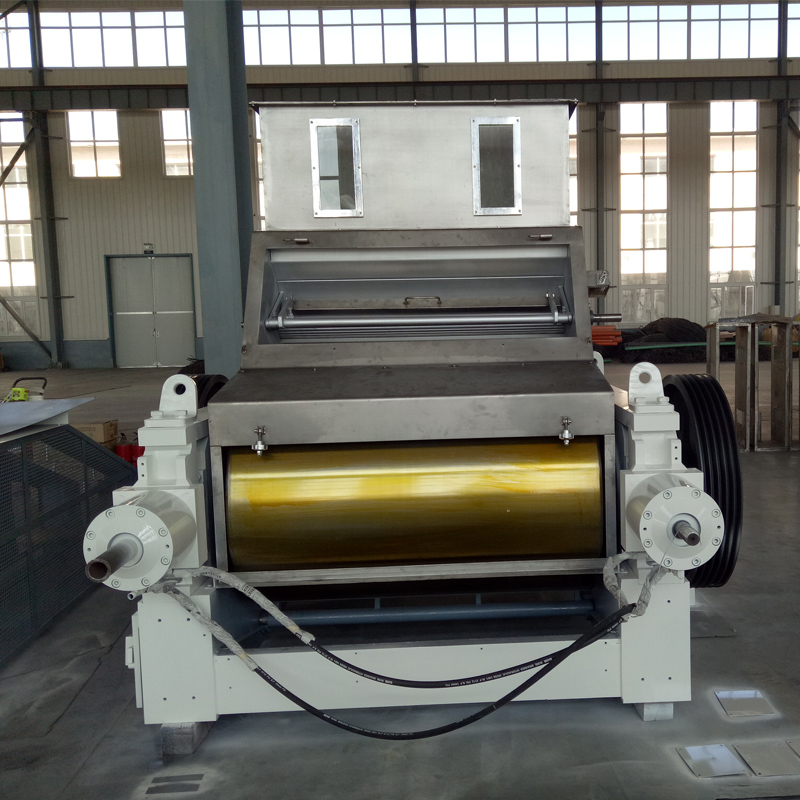nóv . 29, 2024 19:40 Back to list
Cashew Shell Oil Extraction Process and Production Equipment Overview
The Production Line of Cashew Shell Oil A Sustainable Approach
In recent years, the demand for sustainable and eco-friendly products has seen a significant rise. One such product that has garnered attention is cashew shell oil, derived from the shells of cashew nuts (Anacardium occidentale). This oil not only serves various industrial purposes but also promotes waste utilization, making it an essential component in the realm of sustainable industrial practices. The production line for cashew shell oil is a fascinating process, highlighting innovation, efficiency, and environmental stewardship.
Understanding Cashew Seed and Shells
The cashew tree is native to Brazil but is now widely cultivated in various tropical regions. For every cashew nut produced, a substantial amount of cashew shell is generated, often discarded or left to decompose. These shells are rich in anacardic acid and other valuable compounds, making them ideal for oil extraction. The essential oil extracted from these shells has various applications, including biofuels, lubricants, and even pharmaceutical products.
Cashew Shell Oil Extraction Process
The production line for cashew shell oil comprises several stages, each designed to maximize yield while minimizing waste.
1. Collection and Preparation The first stage involves collecting the cashew shells from processing units where cashew nuts are harvested. These shells are then cleaned to remove any impurities and foreign materials, ensuring a high-quality output.
2. Crushing The cleaned shells are then crushed to increase the surface area, enabling better extraction of the oil. This mechanical process is critical, as it helps in breaking down the tough shell structure, making it easier to release the oil during pressing.
3. Extraction After crushing, the next step involves the oil extraction. This can be achieved through various methods, including cold pressing or solvent extraction. Cold pressing maintains the oil's integrity by avoiding high temperatures, while solvent extraction can yield a greater quantity of oil using organic solvents, such as hexane. Advanced extraction systems are designed to recover solvents for reuse, further reducing environmental impact.
cashew shell oil production line product

4. Refinement Once extracted, the crude cashew shell oil may contain impurities, such as residual solids and moisture. Refinement processes, including filtration and distillation, help in removing these impurities, resulting in a high-quality oil suitable for commercial use.
5. Storage and Packaging After refining, the oil is stored in suitable containers to be protected from light and air, which can degrade its quality. Proper packaging is crucial to preserve the oil's properties and ensure a longer shelf life.
Applications of Cashew Shell Oil
The uses of cashew shell oil are diverse and expanding, reflecting its versatility. In industries, it serves as an effective bio-lubricant, reducing reliance on petroleum-based products. Additionally, it is used as an eco-friendly pesticide and as a raw material in the production of resins, paints, and coatings. In the pharmaceutical industry, the oil's properties can be harnessed for creating natural preservatives, while its antioxidant characteristics contribute to health products.
Environmental Impact and Future Prospects
The production of cashew shell oil not only presents a sustainable alternative to conventional oils but also contributes to the reduction of waste associated with cashew nut processing. By utilizing the by-products of cashew harvesting, industries can support a circular economy model that emphasizes sustainability and resource efficiency.
Moreover, as consumers become more environmentally conscious, the demand for cashew shell oil is likely to increase. This demand could encourage investment in more efficient extraction technologies and promote research into the potential applications of cashew shell oil across various sectors.
Conclusion
The cashew shell oil production line exemplifies a sustainable industrial practice, transforming what was once considered waste into a valuable resource. By harnessing the potential of cashew shell oil, industries can reduce their ecological footprint while meeting the growing demand for innovative, eco-friendly products. As technology advances and awareness of sustainability grows, the future of cashew shell oil looks bright, promising a cleaner and greener alternative for various industrial applications.
-
Oil Processing Equipment - High-Efficiency Flaking Machine
NewsJul.25,2025
-
High-Efficiency Peanut Oil Refined Machine for Quality Oil Production Leading Exporters & Companies
NewsJul.08,2025
-
High Efficiency Sunflower Seed Oil Press – Leading Cooking Oil Press Machine Factories & Suppliers
NewsJul.08,2025
-
High-Efficiency Soybean Oil Press Machine – Leading Exporters & Reliable Companies
NewsJul.07,2025
-
High-Efficiency Seed to Oil Extractor – Reliable Extraction Machinery for Your Business
NewsJul.07,2025
-
High-Quality Pressing Screw of Oil Expeller for Efficient Oil Extraction Leading Exporters & Manufacturers
NewsJul.06,2025
